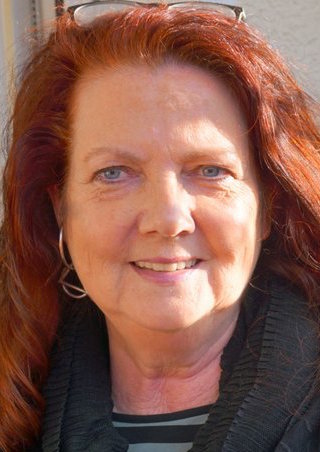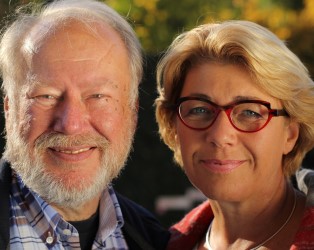Healthy Autonomy
Association for Promoting Healthy Autonomy e.V.


Our Speakers
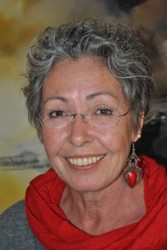
Identity-oriented Psychotraumatheory and -therapy (IoPT) in One-to-One Sessions
A one-to-one session with a client needs a different setting than a group session does. In this case the IoPT-Method is applied in a different way. The differences in a one-to-one session are necessary because there are no other persons available to interact besides the client and the therapist.
Within a one-to-one session the focus is on bilateral interaction. In order to build up a deep relationship between client and therapist the therapist has to be able to be in a cleared up inner relation with himself (or herself) at first.
Within my workshop I would like to explain and show how the IoPT-Method can be applied in a one-to-one session and how the therapist can create a situation of stability and security for the client to support his/her therapeutic process.
Birgit Assel, social worker, trauma therapist, co-author in the book of Franz Ruppert “Early Trauma”, over 20 years of professional experience, since 12 years the focus is on trauma therapy in cooperation with Franz Ruppert. Birgit Assel established her own training center for basic and advanced education in trauma therapy as well as supervision for experienced therapists.
www.igtv.de
This email address is being protected from spambots. You need JavaScript enabled to view it.
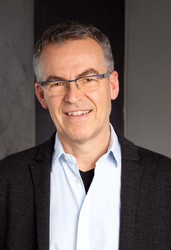
Trauma, Illness and Healing
A trauma splinters the integrity of body and mind and interrupts the coherent body-mind connection necessary for health. There is a disintegration of feeling, sensing and thinking on different levels. Neither cognitive recognition nor emotional feeling/sensing alone is enough to integrate these separate areas again.
A trauma recovery can only succeed if the so-called visceral sensations, in other words the materially stored experiences from the stomach, the heart and the neck signal us that the threat and the nightmare is over and there is no danger anymore.
Therefore, it is necessary to involve the body with all its scars and wounds, to allow it to show and express itself and thereby gradually liberate itself from the burden and all its stress it has borne throughout its lifetime. As a result, it can gradually succeed that a wide variety of physical symptoms are no longer needed and can be transformed into power and life-giving energy.
Download workshop documents / Handouts
Dr. med. Harald Banzhaf, Specialist in General Medicine, Sports and Preventive Medicine, Environmental, Occupational, Social Medicine, Naturopathy and Acupuncture, Manual Medicine, Applied Kinesiology, Modern Mayr Medicine. Since 1996 office and clinic for integrative medicine and head of the medical center Zollernalb. Lecturer at the University of Tübingen. Since 2007 certified MBSR teacher. Seminars for development and healing. Initiator of the project "mindful medicine". 2-year Train-the-Trainer program in Mindful Leadership at the University of Witten-Herdecke. Since 2011 identity-oriented constellation work and trauma therapy according to Prof. Dr. Ruppert, Munich with regular training and intervision. Trainer for healthy leadership in business and healthcare. Co-author of "Meditieren heilt" together with Prof. Dr. Stefan Schmidt and "Mein Körper, mein Trauma, mein Ich" together with Prof. Dr. Franz Ruppert.
www.dr-banzhaf.dewww.heilkundezentrum-zollernalb.de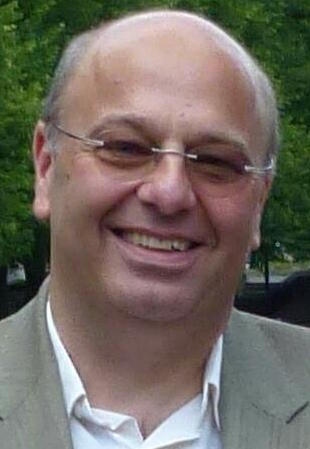
I Want to Accept My Left Knee
Rarely are the causes and effects of an accident associated with a phychotrauma biography. Often, an accident is regarded as just a physical, monolithic trauma. A healing process that just focusses on the body then becomes another opportunity to further split off the true causes of the events.
In my workshop, I want to demonstrate this cause and effect relationship by drawing from a sports-related accident at the time I was 12 years old, thereby illustrating the pre- and post psychotraumata and survival situations.
I want to present that the process of the Method of Intention can be modelled in such a way that an empathic, therapeutic process can be started and physical and psychologial pains can find their closing. Thus leading out of a trauma biography that otherwise will be triggered repeatedly.
Detlev Blecher, born 1960, diploma in social sciences, working as a therapist, coach and lecturer at educational institutions. Practice in Hanover, offers seminars in Hanover, Cologne, and Bielefeld.
www.detlev-blechner.de
This email address is being protected from spambots. You need JavaScript enabled to view it.
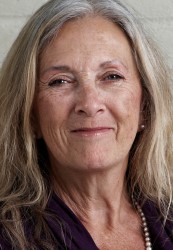
Skills and Practice Forum
My aim in this event is to provide a space for the exploration of participants' questions, uncertainties and difficulties as practitioners. As IoPT theory and method become increasingly defined and sophisticated, it dictates a philosophy and ethic of practice. What are the important requirements of the practitioner when working with trauma as IoPT defines it? How do we translate this into activity? What does it mean in practice to "hold the balance"? What are your questions about your practice, whether in the one-to-one session or in the group?
I will facilitate a process using the Intention Method to look at some of the questions raised.
Vivian Broughton, I have been a practising psychotherapist for 30 years and have been a student of Franz Ruppert’s work since 2005. With this combination, issues of skill and practice are close to my heart. I have written three books, two on Franz Ruppert's work. I have also edited the English language editions of all of Franz's books. I have founded The Centre for Healthy Autonomy in London.
www.healthy-autonomy-centre.co.uk
This email address is being protected from spambots. You need JavaScript enabled to view it.
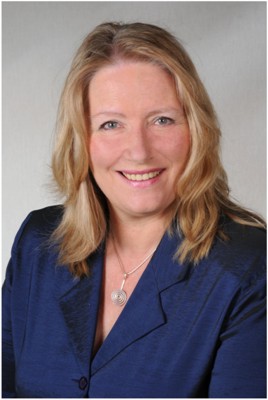
My Pain, my Trauma and I
Everyone knows acute pains. They will disappear after a short time. However, if these short-term pain persists longer, scarcely appeals to medical treatment and becomes chronic, the life of people suffering from these pains can become increasingly intolerable.
In Germany, about 25% of the population receive lasting pain relief care. However, rarely sustainable improvement occurs. The pain, that once was a protective warning signal, has long lost its natural function. It has moved into an excessive, often chronic pain, which makes those affected helpless and turns them into victims. It often bears no relation to the organic results and usually shows various forms. Scientifically, we now know that the areas for emotional and physical pain are in the same part of the brain. This gives an indication that body and mind cannot be separated. Therefore, to what extent are emotional stress and early trauma the cause of chronic pain, to which an enhanced physical component has been attributed? Can it be that the so strongly felt pain has a completely different context and it improves when we deal with our unloved and traumatized inner parts? After a short presentation with practical examples, there will be the opportunity to look at one's own pain issue with the help of an IoPT-constellation.
Annemarie Denk, Dipl. Soz. Päd. (FH), qualified social pedagogue, individual, couple and family therapist, health educator, medical studies, hypnotherapy. Since 1998, active in medical practices (focus on pain, stress, relaxation, infertility, psycho-oncology), in the treatment of pain of the Paracelsus Klinik Munich and in private practice. 2012 training in Identity-oriented Psychotrauma Therapy with Franz Ruppert. Co-author of the book "Early trauma" and of the book „My body, my trauma, my I“. Individual and group work.
Practice in München.
www.medibalance.com
This email address is being protected from spambots. You need JavaScript enabled to view it.
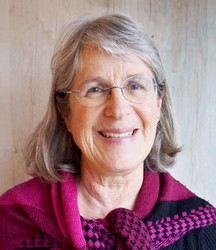 The great joy of finding my ”I”
The great joy of finding my ”I”
Many of my clients are feeling lonely, not belonging, not good enough even if they have work, family, and friends. Could early trauma have such consequences? Not knowing who they really are, not knowing what they want, and having bodies sabotaging the owners? Giving them autoimmune problems, inflammations, the need to calm down with alcohol or drugs etc. Some goes into relationships in order to get away from the pain of being alone, no matter if the partner is an alcoholic, much traumatized etc.
I want to have a short talk about what we get into when the healthy ”I” and healthy ”will” is split off from early age. And give some “golden” insights from clients in their search for themselves. IoPT theory explains what happens to us when we make early traumatizing experiences. IoPT therapy gives a way to reclaim ourselves, including body, psyche and trauma biography.
There is time for one constellation, with a topic connected to health problems or problems in relationships.
Download Workshop Documents / Handouts
Astrid Ersland Sandvik, psychotraumatherapist, studies with Marta Thorsheim since 2003. She studied in prof. Ruppert´s Advanced International trainings since 20I3. Started practise in 2009, groups and individual setting. She is a supervisor for Traumatherapists IoPT.
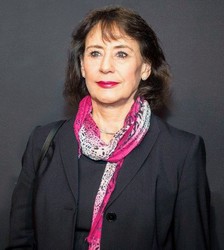 Healthy and Vibrantly Alive: Is that possible?
Healthy and Vibrantly Alive: Is that possible?
What does 'healthy and vibrantly alive' mean? And what can you do to promote this state?
The subconscious self is very delicate: traumas result in separation between the self and the body and express themselves via bodily pain.
The psychological self comes into being as early as at conception. While a human being is growing in their mother's womb, his/her psyche and organism are impacted by the mother's living organism and her psychological traumas. Early traumatizing experiences tend to have a more profound and lasting impact and may manifest later as physical abnormalities.
No other creature needs to be taken care of for as long as the human infant, who during the first year of her life is not even able to stand on his/her own legs. The human infant is totally dependent on his/her caretakers. A wide range of factors---being wanted or not, every ambivalence between the father and the mother, all kinds of pressures, the social conditions, religious aspects and acceptance or rejection of the child's gender as well as shock and stress---can create trauma. Rarely does a child grow up under ideal circumstances.
Every individual comes to develop his/her own trauma biography. The constellation of the intention, an approach developed by Prof. Franz Ruppert, enables the individual to gradually disengage from his/her own trauma biography. Step by step, it becomes clear what happened, why we react in particular ways. Internal victim-perpetrator structures can be overcome, allowing our healthy parts to come forth and form our healthy self. The pain we used to experience will almost magically disappear, since we emotionally understand what it wants us to pay attention to.
I had the privilege experiencing of my own psychological and physical health getting restored and am infinitely grateful for that, thus I am looking forward to the intentions presented by the participants. The order of candidates will be determined by drawing lots.
Gerlinde Fischedick, Psychological Systemic Therapist, Psychological Counsellor, Attorney, Certified Mediator. Own practice in Hannover, Germany.
www.zentrum-lebenstraining.de
gerlinde-fischedick@t-online.de
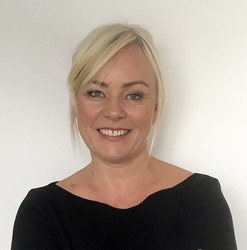 Chronic pain and early trauma
Chronic pain and early trauma
An estimated 30 percent of adults in Norway and Western Europe suffer from chronic physical pain and women are far more affected than men. In most cases, there are no apparent medical reason behind their painful suffering or it is related to autoimmune diseases. Autoimmune diseases are conditions where the human organism attacks itself because it cannot longer differentiate between benign and malign – what is good and what is bad, what is self and what is not.
In my workshop, I want to explore the relation between early trauma and chronic pain. In my IoPT practise, I have several clients with different bodily symptoms and diseases. Very often, they present symptoms in the pelvic area and the reproductive organs (women), back pain, migraines, abdominal pain and diffuse muscle pain. My experience with these clients is that their symptoms fade and sometimes vanishes completely when they are able to feel and integrate their childhood feelings and memories of early trauma.
Splitting the psyche and emotions off from the body, seems to lead to chronic pain in its many forms. Splitting off one’s healthy structures is for an infant or even an unborn a matter of survival, and when the child’s environment offers no protection, the impact must be severe.
The well-known ACE Study (Adverse Childhood Experiences Study, (Felitti and others) shows that as the numbers of adverse experiences increase in childhood, it is followed by an increase in the number of autoimmune diseases, frequent headaches and other similar conditions in adulthood. I invite in this workshop to explore symptoms like chronic pain. There will be the possibility for one Identity constellation, and discussion.
Bente Fjeldstad, Psychotraumatherapist IoPT in Oslo - Norway, trained with Marta Thorsheim and Prof. Franz Ruppert since 2010. Practice since 2011 in both individual and group settings. She has former practice from massage therapy and infant massage for bonding purposes, married and has two sons aged 22 and 25.
www.bentefjeldstad.no
bente.fjeldstad@gmail.com
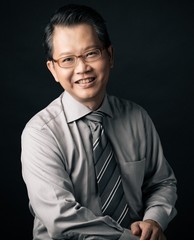 My body is awake in my sleep
My body is awake in my sleep
Imagine waking up in the middle of the night screaming in your sleep disturbing your family members and having no idea what triggers it. This was my introduction to sleep terror. It had an intense, autonomic arousal with motor activity that results in anxiety and post-traumatic disorders.
Lack of sleep produce brain exhaustion and it affects the mental, emotional states, which can trigger hallucination and depression. Long-term effect might include increase risk of chronic illness, diabetes and heart diseases. This unconscious symptom affects the bodily systems of respiratory, digestive, cardiovascular and endocrine, just to name a few.
In my practice, I found out for sleep terror, that the body, which seemed to be asleep is not at rest. Very often the source of trauma manifests itself and yet the client has no recollection of what the dream and the active movements of shock the body went through is about. Sometimes it involves kicking, shouting, yelling, sleep walking, sometimes hurting of the partner sleeping in the same bed. The body is still conscious in sleep.
The body forms the framework where the reference to the above symptoms could be traced back to an early trauma source. Dissociation was the response.
In my session, we explore “Who are you in the terror and fear that wakes you?” “What is the unconscious response that needed to be heard and understood?” I want to support you using Franz Ruppert’s Intention method to uncover the answers.
Raymond Foong, born 1968, Singapore, IoPT Therapist, Master in Social Science (Counselling), coaching and training since 2004, Co-Pioneer of IoPT workshops and professional training in Asia together with Christine Wong. Raymond worked with groups and individual using Method of Intention for the last 3 years. Professionally supervised by Prof Franz Ruppert, Christine Wong and Vivian Broughton. Practice in Singapore
www.systemoftheheart.com
raymond@systemoftheheart.com
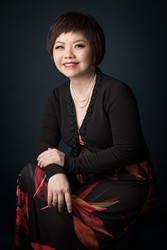 My body and my Sexuality
My body and my Sexuality
In the past 4 years of my own intensive understanding and practice based on Identity oriented Psychotrauma Theory by Professor Franz Ruppert, I am humbled by the thousands of lives many of whom are adults whose sessions I have personally facilitated. From here, I realised that there is a huge and important topic that is most untalked about, suppressed and misunderstood. It is the topic of sexuality and how many of us have lost the healthy contact with our bodies.
Many have come forward to seek help on their sexual confusion, aggression, avoidance, resistance, addiction, sexual traumatisation during their childhood or even adulthood, sexual dissatisfaction, sexual fantasies and illusions and many other issues around the topic of sexuality. It has a lot of negative effects on their physical, psychological and emotional states, relationship with their partner, children and family. Most importantly, it affects the relationship with oneself as a person - the unconscious harm done through self-attack, self-criticism, self-blame, guilt and one’s internal fragmentation continues to deepen.
Through the Intention Method, the clients have discovered the source and their trauma and as a result losing contact with their healthy “I”, and their bodies. In my workshop, I want to focus on working with you whether you are a client or observer to understand the effects of the traumatisation of your Identity on your sexuality. Indeed, there are no other ways to healthy sexuality until we establish the contact with our healthy “I”. Then we can understand what is healthy contact with ourselves, others and what do we want from our partner. I welcome everyone who wants to have a healthy sexuality to come, learn, and explore with me.
Christine Foong Wong, born 1971, Singapore. IoPT Therapist & Trainer with own practice, since 2013 working closely with Prof Franz Ruppert to pioneer IoPT workshops and professional training in Asia. Supervised closely by Prof Franz Ruppert through frequent supervision sessions organised in Munich. Has facilitated more than 1,500 IoPT sessions in the last 3 years. Christine also conducts IoPT private sessions through Skype, practice in Singapore.
www.christinewong.sg
christine@systemoftheheart.com
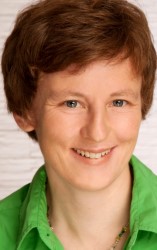
I and a Healthy Physical Activity
Physical activities belong to the basic human needs like eating, drinking, sleeping, physical warmth, relationship, sexuality. Therefore physical activity is a precondition for physical and mental health – i.e. to walk, run, jump, climb, turn around, dance, balance, clap one’s hands, throw, stretch, swim, ride the bicycle, climb the stairs and to carry something.
Yet it seems that this, sounding so natural, is not easy. We force our natural physical activity in sport disciplines with their own rules and aims, we move our bodies too little or too much, we thereby feel an exaggerated, ecstatic euphoria or only aversion and torture, we continue despite of pain signals or immediately stop in case of light unease.
- Why do we lose contact with our natural physical activities?
- Why is physical activity becoming sport?
- Why do we have to do sports? Competitive sports? Risky sports? Healthy sports?
- Why is it so difficult to find the right balance?
Traumatic experiences are stored in our bodies and can be activated again by physical activities. If we move our bodies, we encounter our (un)conscious traumatic experiences. This interferes our ability of sensing and the control function of our mind takes over. This has direct and lasting consequences on the body: We cannot or not properly perceive the natural need to move. As a result, we hurt and damage our body.
My workshop deals first with possible relationships between trauma and trauma biography – physical activity/sports - damage/injuries. A follow-up work with “sentence of intention” illustrates this explanations based on an individual case example and opens up a perspective towards a healthy and natural physical movement.
Christina Freund, born 1974, Diplom Social Pedagoge Trauma Pedagoge, since 2009 seminars and individual work in her own practice in Munich.
www.christinafreund-selbstbegegnungen.de
christinafreund@gmx.net
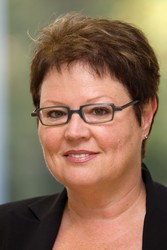 Rheumatoid Arthritis – trying to understand the body and psyche connection
Rheumatoid Arthritis – trying to understand the body and psyche connection
The majority of events in our lives do not suddenly strike us. Things happen one at a time. The onset of an autoimmune disease rarely happens unexpectedly. It is the result of a process consisting of lots of small destructive moments. Moments, which are linked to our early relationship experiences. We usually do not know the extent to which our lives and our current relationships are impacted by this.
Some words, some gestures hurt so much that they create a violent storm that can no longer be restrained, except with the language of the body. Those who suffer from rheumatoid arthritis know this language very well: permanent inflammation, painful attacks, and an organism that derails repeatedly.
What happens? Through an autoimmune disease, the stressful consequences of traumatic experiences are expressed. Without our consent, we have been bound - very early on - to a survival mode that operates based on Either-Or. The sufferers then fail themselves, because they are unable to experience themselves as a whole human being - in all their facets and characteristics. This creates chronic pain and stress in muscles, tendons and joints. On top of that, the immune system and the psyche are in constant turmoil. Over time, a destructive inner dynamic develops which becomes self-perpetuating: The perpetrator-victim dynamic. We are dealing with an unconscious event that not only destroys health, well-being and relationships. It also bans us into a parallel identity and invents a pseudo-self, to which we cling to.
What helps? Only if we stop using the destructive principle of survival, if we abandon the desperate search for a substitute ego, if an authentic self is allowed to develop gradually, the exit from the destructive dynamic can be tackled. How we relate to other people, to ourselves and our body depends largely on the clarity of our perception, as well as on the extent of our trust in our own insights. A healing process often begins in later adult years, just when nothing else helps and when unbearable pain and life-threatening physical symptoms are understood as an invitation to take over the direction in our life.
Mag. Isabella Gerstgrasser, born in 1958, lives in Feldkirch/Austria, working as psycholocist and psychotherapist in her own practice. She is co-author in the book “My Trauma, my Body, my I”. She is a mother of an adult daugther.
www.isabella-gerstgrasser.at
praxis@isabella-gerstgrasser.at
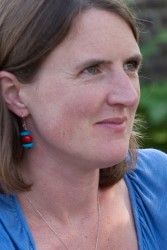 Food Refusal as a Result of Trauma
Food Refusal as a Result of Trauma
This workshop will explore the link between not being wanted as children, from conception onwards, and our later self-rejection through denying ourselves good, healthy food. When our mother does not want us, we can only survive by ‘not wanting’ ourselves; when our needs are too much for her, we learn to negate our own needs, including suppressing our appetite and natural desire for nutritious, nurturing food. Topics for discussion may include: -
• Self-weaning: Rejection of the mother’s breast at an early age due to feeding being a toxic, rather than a nurturing, experience
• ‘Fussy’ eating: children who do not want to eat or limit their diet as a result of trauma (this can often be prompted by the conception of a younger sibling)
• Unhealthy eating: suppression of appetite, choosing foods that do not truly support our health, ‘comfort’ eating, binge eating, vomiting
• ‘Anorexia’: self-starvation as a means of control, over ourselves, our unbearable feelings and our environment
• ‘Body image’: not wanting to become a woman (or man) due to sexual trauma; being thin as the only acceptable way to ‘be’
Refusing ourselves food is a survival strategy to keep our trauma buried; when we begin to feed ourselves in a healthy, loving way, we begin to feel. Moreover, it is through feeling that we learn to honour our own needs, and to feed ourselves. On a physical level, the nature of our gut flora changes according to our emotional experiences, and the food we eat. The journey towards appropriate, healthy eating can either take place within the victim-perpetrator dynamic, which perpetuates the problem, or free of it, when we encounter the reality of our trauma biography.
Lucy Jameson was born in London in 1976. She discovered IoPT in 2012, and in 2015 began her training as a practitioner. She is co-manager of The Centre for Healthy Autonomy in London (www.healthy-autonomy.co.uk) an apprentice on the IoPT Professional Training (UK), led by Vivian Broughton, and a facilitator on the Introductory Course. Together with her friend and colleague Maria Green, she co-presented the workshop ‘Motherhood and Identity Development’ at the Munich conference ‘Trauma, Love & I’ in 2016. Lucy runs monthly workshops at her home in West Sussex (SE England), where she lives with her partner and their two children.
www.symbiosis-autonomy.com
lucyjameson76@gmail.com
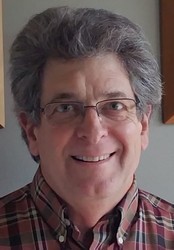
The Individual Identity Constellation and In Utero Work
Recognizing that identity trauma can be traced back to early trauma, it becomes important to have tools that reach back to early life, the womb and even the moment of conception. The first splits resulting from a trauma of identity can occur before birth, but nonetheless the body is recording every experience during that time.
I have found that the Identity-oriented Psychotrauma Theory of Prof. Dr. Franz Ruppert is particularly well-suited to the exploration of early trauma. In this workshop, I will discuss how the Inner Family Systems theory of Dr. Richard Schwartz relates to the IoPT model, as both model explain, how the individual psyche dissociates into parts.
I will introduce the topic of how Identity Constellations can be used for In Utero work, referencing the movie, In Utero, and the book, Early Trauma. I will explain my opinions on the differences between individual and group work, and the cases where I think individual work may be a better fit. I will present a short case study from my own work to illustrate the concepts of the individual in utero constellation. I will also speak briefly about using the individual constellation for self-supervision.
The format for the identity constellation in this workshop will be to work with an individual, using floor markers. I will ask that only those attendees enter the random drawing for this constellation who have a specific in utero issue concerning their conception or time in the womb. We will begin the work with a statement of intention, selecting and placing the individual words on floor markers at the beginning of the constellation. As facilitator, I will explore and support the client's interpretation of the constellation, as we both represent the words of the intention.
Bill Johnson is an independent organizational consultant and coach, working in San Antonio and Atlanta in the US. Having been introduced to systemic constellations in organizations, he soon changed his focus to family constellations with individuals. His learning trajectory in dealing with psychotrauma of clients led him to work with Prof. Dr. Franz Ruppert. Bill uses Identity-oriented Psychotrauma Theory, along with aspects of Dr. Richard Schwartz’s Inner Family Systems theory. Bill has studied the depth psychology of Jung and Hillman at Pacifica Graduate Institute, and does both group and individual work in psychotraumatology. Bill continues to deepen his work on early trauma, with a focus on the in utero experience of the individual.

Sexual trauma and the consequences for my body
If a child is not loved and seen by his mother for who he is, he will suffer from loneliness and groundlessness. In his desperation and forlornness, he holds on to every kind of attention, which is given to him. The childs need for contact and attention is used by offenders (father, uncle ...) and they have easy game to make their victim submissive and traumatize through sexual assaults. Conscious memories of self-experienced sexual abuse are most of the time deeply buried and often completely repressed out of consciousness.
Sexual abuse goes hand in hand with extreme emotions of anxiety, powerlessness, helplessness, shame and disgust. The body petrifies and the unendurable emotions are frozen. The own body has to be left and is henceforth experienced as unfamiliar and not belonging. It often is even seen as an enemy and fought. The own body, which was not able to fight back, is now seen as a contemptible vulnerability. Therefore, it seems logical: if I am not in my body, I am safe.
Abused people live in their own bodies as prisoners and would like to get rid of it. The own corporeality and own sexual needs are rejected and unconsciously fought. Frequent consequences of sexual abuse are self-injury, eating disorders, addictions, alcohol and drug consumption as well as a blocked or destructive sexuality. As well, many physical diseases such as migraine, bladder infection, fibroids, tumours, fungal infections, skin diseases, sleep disorders, allergies, autoimmune diseases.
With help of the Psychotraumatherapy (IoPT) and the Intention Method, we are able to get onto the stressful experiences gradually. It will be possible again to gain access and consciousness to your own self and to get an own want, own needs and an own living body.
Ellen Kersten, born 1969, naturopath since 1995, own practice in 61348 Bad Homburg, Identity oriented psychotraumatherapy with fixed and open groups and in single work, training seminars and supervision
www.naturheilpraxis-kersten.de
ellen.kersten@t-online.de
 My Body and blood disorder
My Body and blood disorder
I grew up not understanding why I am always having fainting spells during assembly and piano classes. I took it as normal and accepted my condition. When I was pregnant with my children, I discovered I had low blood count and after tests found out that I am Thalassemia Minor. Thalassemia is in the medical sciences called an inherited blood disorder in which the body makes an abnormal form of haemoglobin. Haemoglobin is the protein molecule in red blood cells that carries oxygen. The disorder results in excessive destruction of red blood cells, which leads to anaemia. Anaemia is a condition in which your body doesn’t have enough normal, healthy red blood cells. This explains why I have the fainting spells, have shallow breathing and even a hunch on my right side of my back.
It was only after I met Prof Franz Ruppert’s works, that I looked at the root source of my trauma. I needed to have Thalassemia to save my parents from their constant fighting with each other. I experienced an amazing psychosomatic change on my hunch on my right when I realised that I was carrying my mother’s stress.
Often this is also the case with my clients, who have all sorts of creative ways to save their parents, being sick all the time to distract the parents from their own stress. As a mother, I finally understood how I unconsciously put stress on my children by playing the victim role.
Rebecca Lee, IoPT Facilitator, has been closely supervised by Christine Wong, Vivian Broughton and Professor Franz Ruppert since 2014. She graduated from Professional Training in Identity oriented Psychotrauma Theory led by Professor Franz Ruppert and Christine Wong in Asia in June 2017. She has practised the works of Professor Franz Ruppert since 2015 in both individual and group settings in Singapore and Manila.

When the body fights against us: The autoimmune diseases
As a rule, our immune system is the one who protects us against aggressive agents from outside and it protects our own tissues, therefore avoiding the damage of the tissues. However, sometimes, the immune system stops recognizing what is personal and it starts producing autoantibodies that attack the normal cells, tissues and organs, with a series of health consequences.
Autoimmune disease are disorders caused by an inadequate answer of the immune system which starts attacking exactly what it must defend: its own body, its own tissue to be more specific, as if it stops recognize them as being “self”. Why it attacks when it only needs to defend? Doctors do not know the causes of this immune system confusion, although what is known is that the expression of these autoantibodies increases after some inciting events such as infection or tissue damage.
As I have seen so far with the Intention Method, there is a perpetrator-victim dynamic involved, where the autoimmune disease represents a trauma part, manifesting the trauma feelings which are not understood neither felt by the client, there is a lack of empathy in front of his own sufferance and in the worst cases this trauma part is not even seen. There is a ‘self” considered ‘non-self’ by the other parts: “This sufferance is not mine.”
I will facilitate one constellation and we will have the opportunity to see more clearly the causes and the dynamic behind the autoimmune diseases.
Download Workshop Documents / Handouts
Maria-Magdalena Macarenco, was born in 1976, she works in Constanta and Bucharest (Romania). She is a clinical psychologist and EMDR accredited therapist, with 16 years’ experience in the army and in her private practice. Specialized in psychotrauma and PTSD, trained in EMDR (Richard Mitchell, 2012-2013), systemic constellations (Jutta ten Herkel, 2012-2013), Multigenerational Psychotraumatology (prof. Franz Ruppert, 2013-2015) and Identity Oriented Psychotherapy (prof. Franz Ruppert, 2015-2017). Since 2013, she offers constellations seminars using prof. Ruppert method and trainings about psychotrauma.
www.psiholog-macarenco.ro
maria.macarenco@psihotrauma.ro
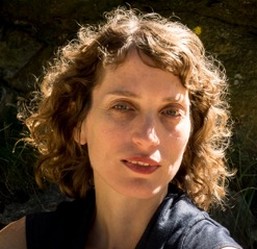 Encountering one's own birth experience with Identity-oriented Psycho-Theory and Therapy (IoPT)
Encountering one's own birth experience with Identity-oriented Psycho-Theory and Therapy (IoPT)
Birth is the physical separation of child and mother, starting a new autonomy. During birth, the child is subject to their mother's experience, as well as going physically through their very own difficult moment.
The trauma experiences of your mother or her awareness of these are crucial prior conditions for childbirth. In addition, the physical and mental state of the mother during birth has a significant influence on the way you are experiencing this episode in your life.
Adding to these, there is the physical event of birth itself, including experiences of violence. Were instruments used, was medication applied? How long did the birth take? Was it bright In the birth room, was it loud, and was it cold? When did the child start breathing? Who touched the newborn first and talked to it?
Everything that is experienced during childbirth, emotionally and physically, can also be manifested in physical symptoms: hypersensitivity and headaches can be after-effects of displaced skull plates, autoimmune disorders or fear of failure those of a C-section, general body pain resulting from the violent experience of a medical examination.
Our birth is reflected in our lives both physically and mentally, especially at challenging times.
I would like to talk about births today, about the own birth experience and its relevance for our trauma biography, and about potential re-productions of that moment in our lives. After that, there will be time for an identity-oriented constellation on the issue of "My Birth Trauma".
Lily Anne Maier, born 1977, home Birth Midwife since 2003. Alternative Practitioner, homeopathy and phytotherapy and Perceptive Educator. Working with Identity-Oriented Psycho-Theory and Therapy (IOPT) according to Prof. Dr. Franz Ruppert.
www.prozess-begleitung.com
anne_maier@gmx.net
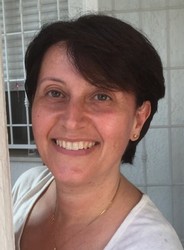 My lungs, my trauma, my I
My lungs, my trauma, my I
The definition of the word "lung" means external exchange. The lung is emotionally and mentally a multi-layered organ and is strongly linked with our early childhood. Did we have enough room to live, think, and feel? Do we let too much affect us and as a result, hold on tightly or release it again? Often, our pattern of thinking and behaviour is connected to infected or ill lungs.
Breathing is a regular process. To be able to inhale we must first exhale, which leads us to the most important symbolism of breathing: uptake and release, giving and taking. Breathing is associated with language because the voice is developed through the breathing air. Speaking is a resounding exhalation, and vocalizations are further expressive variants of breathing.
Word expressions like "gasping for air", "holding my breath", " to fight for breath”, "to be smothered by worries ", give us important information about our feelings and survival mechanisms.
"Asthma" is an expiratory spasm and often refers to an aversion to contact, touch and relationship. This fear leads to confinement, helplessness, and powerlessness, which often lead to more oppressed aggression. In the case of dry coughs, one often sees people who strongly criticize themselves and are full of self-reproach. A cough itself can also be a symptom to keep people away and to maintain a certain distance.
Pneumonia is life threatening. The fear of exchanging air with the outside world has become so frightening that one prefers to suffocate and die.
In my workshop we can embark on a voyage of discovery on what respiratory diseases want to say and to bring the causes to light in order to get in touch with ourselves. It will be selected in a draw to determine who may work on their issue.
Patrizia Manukian, born in 1967 in Zurich , graduated naturopath , kinesiologist , Craniosacral therapist, 2004 encounter with the trauma-constellations and constellations of the intention, 2010-2013 training in Munich with Prof Franz Ruppert for multigenerational Psychotraumatology. Since 2010 self-encounter-processes in groups and individual work in Italy. Organizes and translates seminars and lectures by Franz Ruppert in Italy.
www.ritrovaresestessi.com
pmanukian67@gmail.com
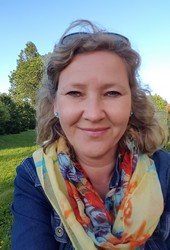 My Body, My Trauma, My I From a Child’s perspective
My Body, My Trauma, My I From a Child’s perspective
«I want to get rid of my allergy», «less stress», «Why was I blind?» «Why am I so cold?» These are some Sentences of the Intention of my young clients. Exploring the children’s sentence or painting usually points to Trauma of Identity, sometimes Trauma of Loss or Trauma of Violence in addition. Often there are identifications with mother, father, siblings or grandparents. Since working with children, youths and their families always have interested me as a nurse and school nurse, its been really exciting bringing IoPT into therapy. It opens a way to the most hidden feelings trying to hide the traumas. Suddenly an understanding for the uneasiness, anxiety, sadness appears in the child. I usually work one-to-one with the children, sometimes with one parent in the room. I often hear the child exclaim: «How can you feel what I feel?» Then they are very curious about the rest of their sentence or painting.
When trying to explain Franz Ruppert’s brilliant method IoPT I once used a guitar in explaining resonance, a child asked: «Is it what the whales do while sending their signals looking for food? Like sonar signals?» Children are genious! Moreover, they easily understand what happens on the floor. It seems to me that the children had better respond on IoPT when at least one of the parents do IoPT as well. When a parent can help the child to find meaning in its trauma and reactions, the child feels better. MOREOVER, of course, changes happen in the child’s life when a parent is doing IoPT and is really taking responsibility of its own life.
Welcome to explore your childs illness or any topic relating to your child.
Download workshop documents / Handouts
Mette K. Mehus, Traumatherapist IoPT with own practice near Oslo. Training with Marta Thorsheim at Institute of Traumawork in Norway since 2011. Former education and practice as a nurse and schoolnurse/public health nurse. I am a proud Mom of three wonderful children born 1993, 1995 and 1999.
www.iopt-ostlandet.no
post@iopt-ostlandet.no
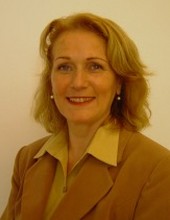
The Trauma of Sexuality in a Couple-relationship
The body is speaking when words are missing
Girls and boys, which suffered from sexual violence, have extreme difficulties to develop their sexual identity. The relation between the experienced sexual trauma and body-symptoms is known. Experienced emotional and sexual violence is stored in the body-memory, even if there is no remembrance of the trauma itself. The sensual pleasure and the erotic attraction of grown-ups is limited by the Trauma of sexuality or totally inhibited.
The body doesn't lie – it is our ally
So-called sexual disorders, fear of body-contact, which is often experienced fear-oriented, limits our preservation of lust and can indicate an existing psychotrauma.
To remain myself in togetherness – a question of identity
To live my own identity means, to understand and accept my individual trauma biography.
Human sexuality is an expression of our own physical experience in the past. The development of a healthy Identity is positively influencing our sexuality. The healthy sexuality in partnership is the result of two humans which learned to accept themselves wholeheartedly. The love towards myself and to feel secure in my own body is an important requirement to live a fulfilled and sensual life and love life.
After the short speech I offer space for an own self-encountering.
Marion Nebbe, born 1955, nursery nurse / officially recognised remedial teacher. Further trainings: Systemic couple- and family-consultations (I.F.W. München). Systemic Coaching/ Supervision (DGSv). Communication trainer und associate lecturer at the VHS Munich for empathic communication (GFK). Mediation based on communication; focus on couple- and family mediation (Institut Sikor). Bodypsychotherapy: Biodynamic massage (Gerda Boysen), Integrative breathing / rebirthing. Sexual consultation (Gabriele St. Claire und Michael Plesse). Boding-based therapy und consultation (Dr. K.H. Brisch). Since 2012 supervision of Identity-constellations in single setting und in group-seminars (IoPT of Prof. Dr. Franz Ruppert) with continued further trainings und hospitations. Since January 2018, I do offer identity-oriented self-encounters for couples with the intention-method to reach a respectful togetherness, away from hurting relationship-dynamics. This offer is aimed to men and women who want to live constructive forms of `we` based on a healthy identity, far away from existing man/woman role-playing and social stereotypes. The focus of my work lies in the development of empathy and self-determination for others and myself.
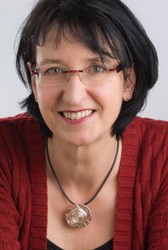 My resonating body - your resonating body in individual work
My resonating body - your resonating body in individual work
Based on my experience our body is a valuable resonating body when working with IoPT in individual work. The process starts with formulating the sentence of the intention, writing down the words is followed by the Constellation of the Sentence of the Intention/self-encounter. It is very important to be aware of the signs that the body provides and to realize the hidden meaning. Individuals have their own pace and their own way of finding themselves. The solution is within us and the individual work is an adjuvant method to go one's own way, gradually. In my view, this is of major importance for a healthy and satisfied existence.
In the workshop, I provide an insight into my way of working.
Beate Neumann-Kumm, born in 1962, married, two grown-up daughters, grandmother; since 2004 alternative practitioner for psychotherapy, since 2008 own practice for holistic integrative psychotherapy in Hildesheim/Himmelsthür. 2010 trauma-therapeutic training in the IGTV (Birgit Assel), followed by advanced seminars with Prof. Dr. Franz Ruppert, Wim Wassink and Margriet Wentink and Vivian Broughton.
www.neumann-kumm.de
info@neumann-kumm.de
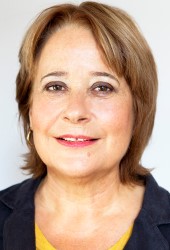
Symptoms of Illness - friend or enemy?
During the constellations we often experience, that symptoms of illness are not encountering us as enemies. Obviously, they seem to demonstrate, that something in our body has lost its balance and is corresponding to an emotional imbalance. The fear that can be caused by physical symptoms gets less, when we start to understand their reasons. Our body may start healing, when we get in touch with our injured parts, which we had to split off in order to survive.
This workshop offers the possibility to connect symptoms of illness consciously to their emotional reasons.
Hedwig Nießen, born in 1954 in the Rhineland, the mother of two young adults. After a graduate teaching degree, she was trained for trauma and educator Trauma-centered expert advisor. She works since 1995 in crisis counseling and youth services. In 2012, she learned the identity-oriented Psycho Trauma Therapy by Prof. Dr. Ruppert and provides this method to individual clients and groups. Practice in Tübingen und Stuttgart.
www.hedwig-niessen.com
hedwig-niessen@t-online.de
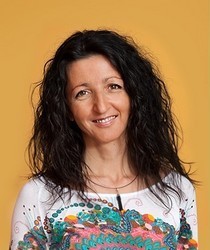
Physically visible Trauma
How do we handle situations where “physically visible trauma” is in the primary focus? When there is obviously no way to suppress it because it is visible every day for war invalids, victims of violence, mutilations, accidents, violence or even scars of surgery? How do people deal with these kinds of problems? In which kind do the victims or patients try to suppress the daily memory their body shows them?
During all the years I have worked with these kinds of topics and experienced that nearly all of the people had a very distinctive perpetrator- / victim-dynamics within themselves. Regarding their perpetrator-structure, they reinjure themselves in the stagnating part of the body repeatedly. This happens unaware but sometimes also very aware. Typical behaviour patterns are: downgrading the pain, ignoring the obvious symptoms, making fun of the pain and bragging with the fact how much agony they can withstand.
On the other hand, the victim-type structured people try to find something positive about it. There focus is to inhabit the symptoms or their wounds as an advantage and normally I can witness that these people sacrifice a large portion of their live to their derogations.
Sometimes they use their situations by stepping into premature pension, or being nursed by their children. With this type of behaviour, they try to live out their symbiotic needs of their childhood.
The first therapeutic approach concerning this topic has to be in a supporting way, so the individual is able to grow awareness of their trauma. In the actual therapy, the focus must be to enable the clients to find their own open-minded experience, to integrate all the divided parts and finally to give them resources to get out of their own trauma-biography. Another purpose is to get them to the point where they can perceive their own physically visible trauma, to understand and move the emotional processes, which are associated. The final goal is to find a way to build a healthy relationship to yourself.
Ingrid Perg, born in 1965 in Lienz, married and mother of three, Dipl. Life and social consultant, state-approved healing masseur, Dipl. hypnosis practitioner, since 2008 working in my own praxis in Lienz, since 2011 further education by Prof. Dr. Franz Ruppert
2014 – 2016 further education in somatic experiencing by Peter Levine,2017 further education by Prof. Dr. K.H. Brisch – bonding psychology.
www.ingridperg.at
office@ingridperg.at
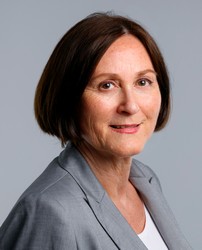 Identity Trauma and Burnout
Identity Trauma and Burnout
In this workshop we will explore how early trauma (e.g. by being an unwanted child, surviving abortion attempt or lack of contact in the start of life) can set us up for a life time struggle to convince others and ourselves that we are worthy, capable and needed. Early trauma means that at a very early age we changed from a “safe” development mode to an “unsafe” emergency mode and contact with our body was reduced or lost. Traumatic experiences are stored in our bodies and can easily be activated by triggers. In a traumatized culture our triggers get pushed constantly and work can be a valued identification object. By sacrificing ourselves for work, we unconsciously hope to belong and have value.
When feelings of unworthiness are triggered we easily go into survival mode, neglect our own needs and sacrifice ourselves for our work. When performing like “work machines” with an enormous will to perform, we will often gain recognition, but over time the feeling of emptiness, numbness and symptoms of burn-out will grow. As the trauma occurred very early we have no recollection or understanding of the root cause of our behavior.
Frantz Ruppert’s model of the Splitting of the Human Psyche describes symptoms such as obsession and overwhelm. These symptoms are also easily recognizable in persons with burnout.
After the talk there will be possibility for a constellation.
Download Workshop Documents / Handouts
Sissel Bru Reksten (1957), Psycho trauma therapist IoPT, one to one and group, IoPT trainer with own practice IoPT Stavanger, Norway, since 2017. Supervisor for Trauma therapists IoPT. Sissel was Trained and Certified (2013) with Marta Thorsheim at Institutt for Traumearbeid, Oslo, has followed Prof. Franz Ruppert’s Advanced International training 2014-2016. Sissel has a Bachelor in Social Work, Cand. Mag. In Organization and Leadership, Master in Change Management. She has used IoPT theory in her work as social worker, organization consultancy and rehabilitation and integration work. Sissel has a practice in Stavanger and also offers trauma information training for professionals.
www.ioptstavanger.no
sissel@reksten.no
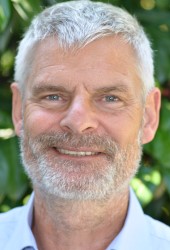
My Teeth, my Trauma, my I
In this workshop, I will demonstrate which possibilities are available to understand and treat the various and most often very painful symptoms of teeth and the orofacial area.
Ordinary treatments of school medicine of these symptoms seem quite often not to be efficient, especially when these symptoms are part of a life sustaining strategy for the client. In clearing and understanding the unresolved psychic conflict, which is working behind these symptoms, we can facilitate important steps for our health and personal development. By doing so dental treatment can be even more efficient and sometimes the only way to be helpful.
As a holistic dentist in my own office, I can see every day patients who have enormous stress and pain in their teeth, jaw and the relating structures as neck, head and shoulders. By asking them it shows up that many of them have multiple and effortless treatments done in school medicine. In my workshops, my clients can find with the intention method unconscious, most often very early trauma experiences, which appear as their symptoms many years later. These trauma experiences are the base for a trauma identity. Therefore, constellation work with the IoPT method create a huge potential to understand our body and ourselves much better. In my workshop, I will explain my way of treating my patients and clients and give examples from my experiences in my dental office and my coaching practise. We also will have the opportunity to do a constellation work with the intention method during this workshop.
Thomas R. Röll settled since 1990 in my dental office in Ulm as a holistic dentist. Since 2008, I am also working as a Coach and Counsellor and are giving seminars and lectures. Since 2009 training and supervision with Franz Ruppert’s IoPT method and offering seminars with him at Ulm.
www.ganzheitliche-zahnmedizin-ulm.de
info@ganzheitliche-zahnmedizin-ulm.de
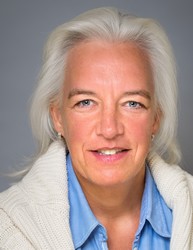
Self-encounter by using the Sentence of Intention in individual sessions
My work is shaped by the mindset that the answers and solutions to an individual's development reside within her or him, and that he or she intuitively feels what is right. I value and empathically accompany my clients on their path to themselves - to their identity.
By mirroring and by the reactions of an empathic counterpart awareness and insight arise and enable individual development. In my workshop I demonstrate how in an indivudual setting it is possible to successfully reveal the psychic split and its dynamic visible on the outside. Depending on the client's preferences I also apply subtle body work (BODYNAMIC©) during the process.
After the session there will be time for questions and discussion.
Sophie Ruhlig, born 1966 in Braunschweig, Germany. Studies in Stuttgart. In 2012 education in Identity-oriented Psychotrauma Theory (IoPT) developed by Prof. Dr. Franz Ruppert. Since 2012 I am a certified BODYNAMIC© practitioner (somatic psychology and analysis developed by Lisbeth Marcher). Since 2015 private practice in Munich, offering individual and group sessions. Since April of 2017 I offer my psychological facilitation services also in Hamburg. Annually, I organize a seminar with Prof. Dr. Franz Ruppert in Hamburg. My practices are located in Munich and Hamburg.
www.sophie-ruhlig.de
sophie@sophie-ruhlig.de
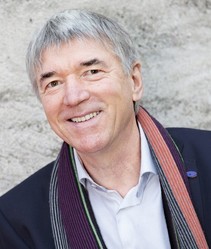 My Body, my Trauma, my I
My Body, my Trauma, my I
Symptoms, which show up on the level of our body, very often are the result of trauma. Many of us are fixed in their trauma biography from the very beginning of their life. The trauma biography starts with the Trauma of Identity, continues in the Trauma of Love and the Trauma of Sexuality and summits in the Trauma of being a Perpetrator. What can we do to exit our trauma biography? How is it possible to live a healthy life?
Franz Ruppert, born 1957, develops Identity oriented Psychotraumatheory and –therapy (IoPT) since more than 20 years, using the constellation technique as a most powerful tool to get deep insights in the human psyche. Meanwhile, he has written nine books about this issue. He gives seminars and lectures worldwide and offers trainings in German and English.
www.franz-ruppert.de
professor@franz-ruppert.de
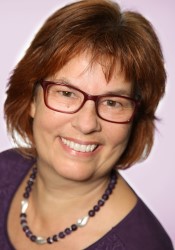
Children and their traumatized Parents
I would like to make clear in this workshop, how valuable the reflection of parents and grandparents on their own trauma biography is. This process is very helpful to allow children the development of a healthy self with own will, own feelings, so that they later as adults can be grounded in a healthy identity.
The I-development is embedded in the We-development and at first the child searches “We" in the mother. If the mother is not available emotionally, the child tries to compensate this by safe connection with the father or the grandparents. The offers for identification always come from outside and in its best from the mother. If the mother has no clear identity the child has only the possibility to connect with the trauma feelings of the mother to be emotionally in contact with her. The child gives his up own his own will and I. He cannot differentiate any more between own and feelings from the mother. His healthy I-development is severely disturbed. Because of my own identity trauma, I was not able to build up emotional contact neither with my mother, nor with my father, because they were deeply traumatized. For years I myself chewed nails, a sign of my unaware suppressed auto aggression. In this manner I expressed trauma feelings which I did not feel any more.
In this workshop, I would like to explain some examples from my practice. Parents are mostly not aware of her own traumas and are often fixated on the illness symptoms of their children (e. g. stomachaches, bedwetting, sleep-concentration problems) or believe that there is no recognizable reason for their children’s remarkable behaviour (aggression, fear, nails chew, ...). The Intention method can help to recognize own identity trauma or trauma of the love, to find out gradually a good relationship with oneself, to develop the wish for a healthy parental/child relationship and to live this practically. A practical work will be done in this workshop.
Birgit Schaumburg, born in 1960, married, two adult children, two grandchildren, working as a Qualified Social Pedagogue, Naturopath and Trauma Therapist in private practice for over 20 years in Esslingen.
www.heilpraxis-esslingen.de
info@heilpraxis-esslingen.de
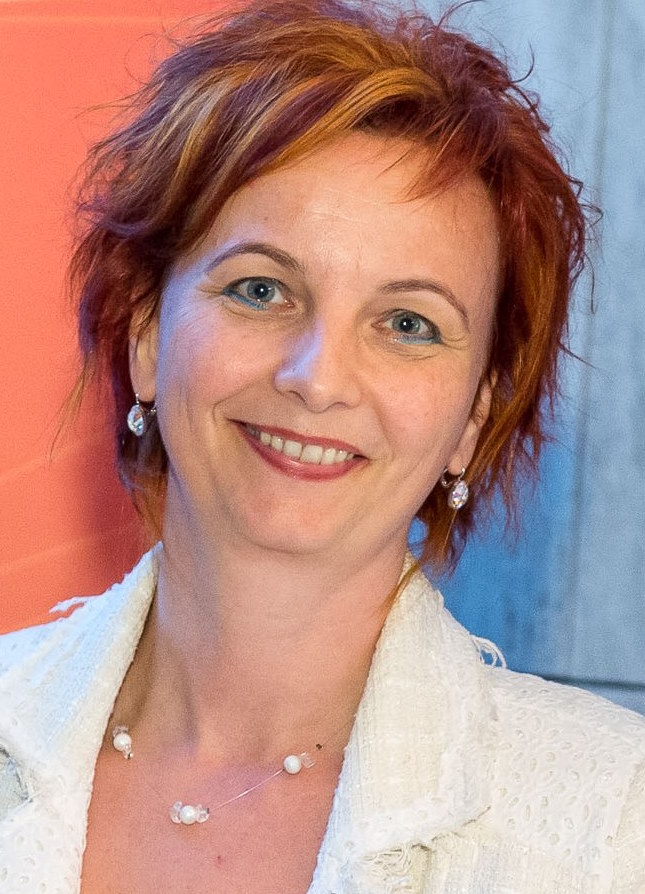
Body and Trauma of Children
When children are in distress, they show it through somatic and psychological symptoms. Babies brought into my practice are often cry-babies. They have e.g. digestive problems, sleeping problems or skin eruptions. Problems of small children are most often difficulties in the relation to other children, fears, enuresis, defecating, infectious diseases or often high temperature. Schoolchildren are tormented besides fears of school or exam anxieties also by mobbing, nightmares, teeth gnashing, frequent belly-, ear- or head-aches, extreme cough or allergies.
The child feels and senses always right. There are always good reasons for it! To recognize and find out the causes of these childlike messages is the basis of my work. A child or a baby is not yet able to express its state of being verbally.
If the treatment of the conventional medicine doesn’t accomplish the healing hoped for, many worried parents turn additionally to alternative methods today. With babies and children I work with the BodyTalk System©, here the knowledge about „Early trauma, pregnancy, birth...“ is important and helpful.
With children from 12 years on I make good experiences with the Intention Method in the individual setting. Depending on their personal maturity, youths from 16 years on come into the group for working with the Intention Method.
The best success is reached, if also the parents are ready to look at their own childhood themes. Often the question is, how it was for me in this age, what I experienced then.
I accompany many of my older and younger clients for many years. I often know the children since babyhood. I am especially happy about the readiness of the parents to risk something for and because of the child, what they would not have dared for themselves – to face their own traumas of their childhood.
Regarding my own children I always took their symptoms attentively seriously and formulated an intention out of that. Looking back that was always worth it!
Bettina Schmalnauer, born 1970, three daughters. 2011 Training with Prof. Ruppert, since then continuously with him at his practice and his seminars. Self-employed in own practice since 2008 with BodyTalk, psychological counseling, coaching, Gordon Training, work according to Franz Ruppert in the individual setting and groups. Co-author in the book “My Body, my Trauma, my I”. Practice in Ohlsdorf near Gmunden, Austria.
www.gesundheitswerkstatt.co.at
office@gesundheitswerkstatt.co.at
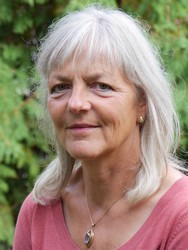 High Blood Pressure – extreme pressure starting from the earliest time of life
High Blood Pressure – extreme pressure starting from the earliest time of life
Already pre-birth the child has to adopt the trauma feelings of his mother to be able to get into contact with her. Usually the mother also traumatizes the child if she does not deal with her traumas. So both, the adopted as well as the experienced traumas have an impact on the child's body. The own mourning, powerlessness, anger, shame, fear of death are split off to survive. From the start, the body and the cells store all sensations and feelings. Therefore, from the very beginning of life an extreme pressure has evolved, an enormous continuous tension, which may for example result in high blood pressure in the middle of lifetime. In my workshop, I want to discuss this topic based on my own experiences as well as examples of my clients. There will be the opportunity of an IoPT-constellation on the issue of „High Blood Pressure“.
Christina Schön, born 1954, own practice for body-oriented psychotherapy since 2001 in Essenheim/Germany, Gestalt-therapy FPI, Natural Health Professional, Cranio-Sacral Therapy, many years of experience as a practicioner in a psychiatric clinic, „Geburtsarbeit“ with K.Käppeli, R. Bücher, Claire Dolby, since 2009 constellations based on Franz Ruppert, 2016 training with Franz Ruppert in Munich.
www.christina-schoen.de
schoenchristina@web.de
The fear of being a mother and unintentional childlessness
When women are unable to have children or decide not to, this is still looked down on in our society. Apparent "functioning" involves having a family, being successful in one's career – and ideally also in the context of a happy relationship. This illusion of the "ideal family" with at least one child is supported in our society without women really asking themselves why they want something or why not.
When a woman consciously decides against becoming a mother, she often gives reasons, which have something to do with objective factors, such as career planning. Rarely, and then only very late, is it acknowledged that because of traumatic experiences she is afraid to have her own children and accompany them as they develop their lives. It is the fear of embracing her own feelings, the relationship and the bond with a child due to traumatic experiences in early childhood or even pre-birth.
My workshop is concerned with the question of what happens in a woman's body if she fails to become pregnant despite her great desire to have a child. Often there are no medical explanations for childlessness and there are actually no evident obstacles to pregnancy. In my practice, I have accompanied a number of women who are trying, or have tried, desperately to bring about a pregnancy using all the medical possibilities available. There are now fertility centres and many more facilities and the message conveyed is that everything is possible. It is mostly not considered that the woman's body and her psyche use all the means available to counteract this, and no one asks why this is so. If we approach this subject using the intention method we invariably find a traumatic experience in early childhood.
In this workshop, we will also examine to what extent the topic of "stillbirths and miscarriages" affects this subject and where there are overlaps. After my theoretical introduction, there will be an opportunity for one intention constellation.
Cordula Schulte, born 1952, married, 2 children, 2 grandchildren. Naturopath for psychotherapy with my own practice in Essen (single and group therapy). Lecturer and seminar leader (DPS). Since 2009 continuous training and supervision in Identity-oriented psychotrauma therapy with Prof. Franz Ruppert, co-author of "Early Trauma". Psychotherapy Practice in Essen.
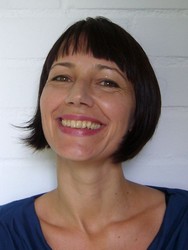 Do I have a body or am I my body?
Do I have a body or am I my body?
The psyche-body dualism as an expression of a fundamental division. This workshop deals with the question to what extent differentiation between psyche and body does already represent a consequence of identity trauma with the interruption of healthy development of 'I'.
In many fields, for example in traditional medicine, body and psyche are still studied separately. The basic assumption of such a split and the resulting view of our bodies as objects are very much taken for granted in our society. We encounter them in scientific studies, the media and in personal everyday life. They still get little attention and are not scrutinized in detail. The hype surrounding beauty, fitness and health, ultimately also mirrors only the distance from ourselves.
When we look at our bodies as objects on which we are fixated, which we worry about, which we ignore, control, evaluate, manipulate, repair, optimize or perfect, we are mainly using aspects of survival strategies to deal with trauma. These keep us at a distance from painful experiences stored in our implicit body memory. Most of the time we do not think about connecting them to our trauma biography.
How can we find a way out of this primal disconnection from ourselves? Which experience gave rise to this separation? With help from the intention method we can gradually, by feeling and sensing, succeed in regaining a sense of our identity and through this encounter coming closer to a reunion of mind and body.
Download Workshop Documents / Handouts
Alice-Schultze Kraft, non-medical practitioner in psychotherapy, runs her own private practice in Kleve. Identity-constellations based on identity oriented psychotrauma theory in group as well as individual sessions, co-founder of the “Centrum für Potentialentfaltung” (Center for Development of Individual Potential) in Kleve.
www.traumatherapie-aufstellung.de
www.centrum-fuer-potentialentfaltung.de
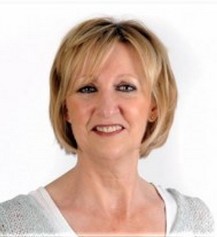 Neuroscience, IoPT and the Intention Method
Neuroscience, IoPT and the Intention Method
It is becoming widely recognised that emotional trauma is a biopsychosocial phenomenon in humans. Using this construct, it can be seen that emotional trauma is brought about through the life-sustaining need for humans to grow in symbiosis with other human beings. Principally this starts with the mother and so In Utero early trauma can occur through this initial symbiosis. When initial symbiosis is a threat to life, because of either the neurochemicals passed through the placenta to the baby, or through dysfunction in bonding post birth, the biology of the baby human is impacted. The biological response to threat imprints the nervous system, and therefore affects the developing psychology. The splits in the psyche as described in IoPT are then neurologically stored and influence the ‘I’.
The expanding Neuroscientific research and data on trauma provides further validation of IoPT. In this workshop fundamental neuroscientific information will be used to describe Identity oriented Psychotrauma Theory and the Intention Method. The neurological impacts of the Trauma of Identity will be brought to life using case studies and scenarios.
The workshop will include a working session after which participants will be asked to share their newly formed understandings of how neuroscientific knowledge illuminates the IoPT Theory and Intention Method.
Alexandra A. Smith, MNCP, Snr Accred, I am a Person-Centred psychotherapist and I offer IoPT Therapy for individuals, couples and parents in my private practice in Buckinghamshire (UK). I also facilitate IoPT workshops, IoPT Supervision for Therapy and Coaching Professionals and Educational Seminars on Developmental Trauma.
I have an eclectic training including Post Graduate studies in Traumatology and Post Traumatic Stress Disorder (PTDS); Transactional Analysis and Neural Linguistic Programming. I am a Senior Accredited Member of the National Council of Psychotherapists, a member of the British Association for Person Centred Approaches and the UK Psychological Trauma Society. I am licensed with the British Psychological Society and I am D&BS vetted to work with minors. I am the mother of two daughters and a grandmother.
www.alexandraasmith.co.uk
alexandra@alexandraasmith.co.uk
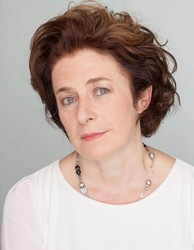
Early Trauma and Thyroid Disease
Thyroid disease has a major impact on our metabolic functions and affects the entire organism. What has irritated the thyroid so much that it either works too little or too much, or is it possibly chronically inflamed? Can the lifetime in the womb be the source of “thyroid health and disease”? In the womb, we are under the influence of maternal hormones. If the mother is stressed and can’t regulate herself, she releases hormones or adrenaline in high doses permanently. Such stressful stimuli can harm the unborn child’s health and, among other things, be the foundation for a later thyroid disorder.
In my workshop, participants have the chance to look at the cause of their thyroid disease with the help of their own "sentence of intention". What can we do for ourselves and for our health, so that our organism no longer has to be in a traumatized state?
Manuela Specht, registered nurse, training in psychology, psychotherapy, voice dialogue, solution-oriented trauma work, training in identity-oriented psychotrauma theory and therapy, psychological counselor, trauma support, setting up the sentence of intent in private practice in Bad Tölz, co-author "Early Trauma".
www.systemische-beratungen-specht.de
manu.specht@t-online.de
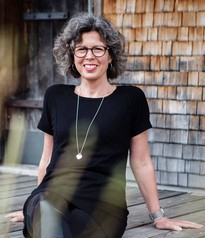
The Lust Predicament
For people whose bodies have been sexually traumatized it is difficult to accept when their bodies get aroused. The split between psyche and body results in both operating separate from each other. Stimulation leads the body to react, which then adds to the victim's feelings of guilt. As a consequence, lust relating to the body and feelings of lust are experienced as separate from each other. A fulfilling love relationship remains absent.
A workshop relating to splits between body and psyche using the constellation method.
Andrea Stoffers, alternative practitioner in psychotherapy, author, owner of the holistically oriented center for health ("Zentrum Mensch Neuss"), organizer of Franz Ruppert's annual workshops in Neuss.
www.zentrumensch-neuss.de
praxis@hp-stoffers.de
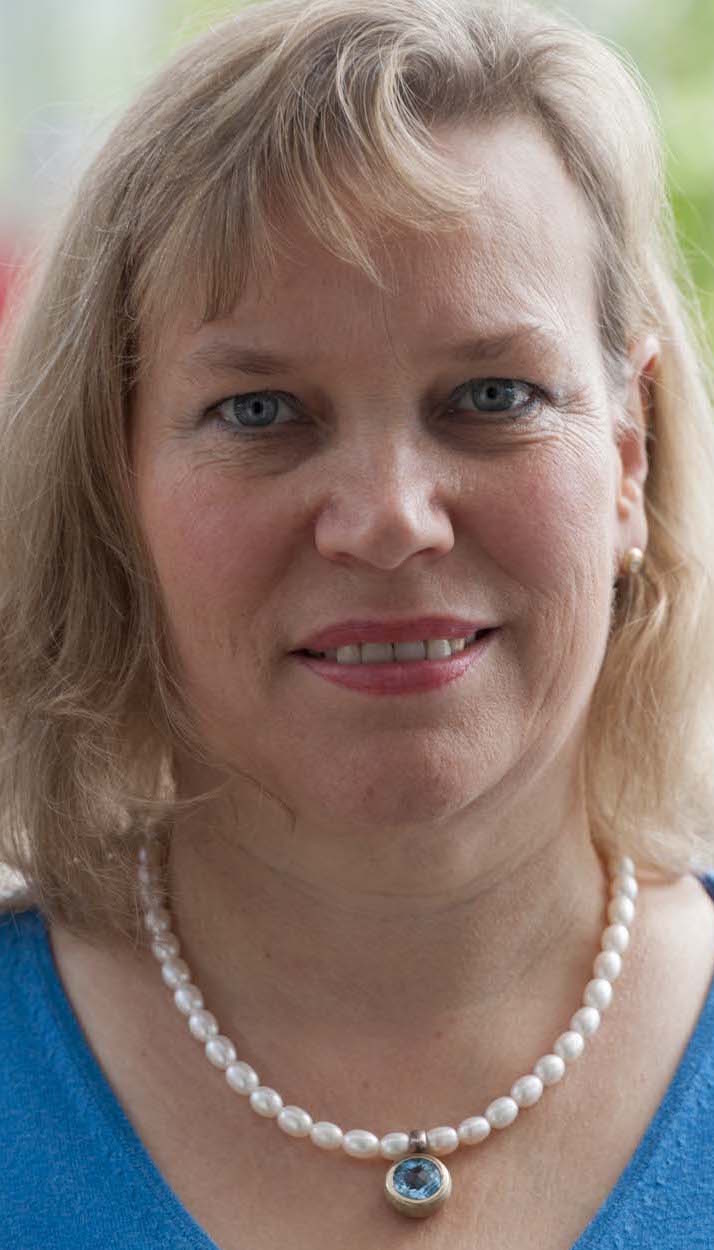
Heart Diseases and Trauma of Love
Cardiovascular diseases, despite intensive care, are among the leading causes of death in Germany. What is the reason for this? Our heart is the centre of our relationships and desire for bonding. It expresses our profound need for human closeness and love.
When in contact with a loving person we can relax and become calmer because we feel accepted, safe and secure. We open ourselves up, our hearts open and a pleasant feeling flows through our entire body. However, not only have the loving feelings affected our heart activity. Outrage, anger, and fear also influence our heartbeat.
Stephen Porges discovered 20 years ago that only mammals possess a social nervous system (Social Engagement System), which is especially related to our heart. This "social engagement system" is responsible for social behaviour and our relationship with other people. It is primarily characterized by a loving, benevolent and attentive interaction with the mother and caregivers. A mother who, due to her own experiences of trauma, is unable to open her heart to the love needs of her child, and thus cannot fulfill the child's desire for attachment, is then perceived, by the child, as a threat. It experiences a trauma of love. In order to protect itself, the baby has no choice but to close its heart as well, by breaking off access to its own needs, feelings and its origin of self.
In my workshop, I will show why the trauma of love has such a strong influence on our heart activity and thus can be considered as a cause of heart disease. On the basis of one or two constellation processes, I will demonstrate in practice how important our "social engagement system" is in encountering self-parts, the development of a loving, constructive "I" contact and the integration of split-off trauma feelings.
The focus of my therapeutic work is the "trauma constellation" with the method of intention based on the "identity-oriented psychotrauma theory" by Prof.Dr. Franz Ruppert. In my intensive guidance and monitoring of the constellation process, I incorporate my theoretical and practical knowledge of body trauma therapy from "Somatic experiencing" (according to Peter Levine), developmental trauma therapy "NARM" (according to Laurence Heller) and the "attachment psychotherapy" by Karl-Heinz Brisch.
In the last few years, I have developed my own "I" centred, trauma-disentanglement and reconnecting-oriented process support. As the client gradually encounters his inner parts, I am constantly in empathic contact with the clients' inner neuroaffective state. Through verbal reflections and psychoeducation, I promote self-contact and help the client to perceive and understand their emotional realm. I assist in allowing the rising of physical-emotional states and make sure that the client stays in the adult state in the here and now position.
Dagmar Strauss, born 1962, 3 adult sons. Since 1988 alternative practitioner and since 1991 in private practice. In 2010 further training with Franz Ruppert on his theory and method "constellation of the intention" and regular internships in his practice. Further education in Somatic experiencing (Peter Levine), NARM (Laurence Heller), Binding Psychotherapy (Karl-Heinz Brisch), Imagination Therapy (Uwe Böschemeyer). Since 2012 regular management of own groups based on the IoPT and the method "constellation of the intention".
www.lebenssinn-wandlung.de
kontakt@lebenssinn-wandlung.de
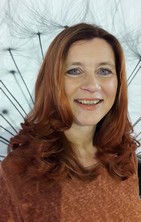 Psychotrauma and Colon Disease
Psychotrauma and Colon Disease
My biography is a based on a factual personal trauma experience in my early twenty's. I was diagnosed with an ulcerated colitis, a chronic inflammatory bowel disease. The beginning of pain and suffering with many trips to doctors, specialist and hospitalization. The treatment and medication to cure my illness was only fighting the symptoms the conventional way not knowing the cause.
The underlining Root-Cause was unknown to me, only after researching I discovered the Trauma-Theories and Therapy work by Prof. Dr. Franz Ruppert that helped me to understand by identifying the psychological aspect and the emotional impact effecting the body and mind. The psychotherapy had a very positive impact to a healthier life.
The ulcerative colitis is a chronic disease of the colon. It is called a "hereditary disease" and usually attacks the colon, causing ulcer, the inner mucous of the colon as the large intestine. This inflammation of the intestinal mucosa begins at the rectum, continuously at various degrees within the colon. The most common symptoms are discomfort bloody diarrhoea, often abdominal pain in the left lower abdomen, constant stool urgency, fever and physical weakness. The diagnostic will have a traumatic effect on anyone, in some cases severe anxiety and stress. Although stress is not causing the disease, but it can add to depression and nervousness.
A change in perception of how to deal with that type of mental discomfort and strategies is the key focus of Prof. Dr. Franz Ruppert by eliminating all the negatives associated with the illness. The therapy based on his insights has given me the power and restored myself esteem to cope with the issue psychological. That made it clear to me that the physical illness that started in the womb. That eliminated some of my concerns; my mindset was positive and had an immediate effect, that calmed me down.
This workshop is designed especially for participants with bowl disease.
Beate Thiessen, non-medical practitioner in psychotherapy, training in Identity oriented Psychotraumatheory and therapie (IoPT) according to Prof. Dr. Franz Ruppert with Birgit Assel.
www.beateclaussen.de
beateclaussen@t-online.de
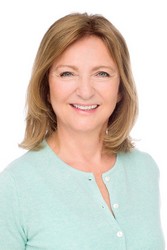
Child ritual sexual abuse, and possible consequences
In my first encounters with people who had experienced sexual abuse within religious societies 15 years ago, I thought this were rear occasions. Later I learned that many clients have been exposed to sexual assaults in religious societies, including paedophile rings and ritual abuse, within different societies, already from the age of newborn. Made into objects and even conceived to be sexual toys, I consider it a miracle how they survived, went to school, studied and worked. Thanks to their trauma-survival-parts, who protected them from the memories. And to the price of having lost contact to their bodies, healthy I and healthy will.
Some has always had fragments of memory but learned to not trust themselves and their memories. Also when meeting the health care system, where no one was interesting in “what happened to you”, even when they shared their fragmented memories with psychologists, they were told “no, of course you have not experienced this”, just as their caretakers had told them when they tried to share as small children. Diagnosed with mental and physical illnesses, like “burnout syndrome”, all kind of skin diseases, ME, eating disorders, cancer, osteoporosis, self harm etc.
By means of IoPT the suppressed memories may come into consciousness and with emotional contact the healthy structures mature and grow, as the bodily symptoms and pain resides.
After the talk there will be possibility for one Identity constellation, preferably with someone having the experience of ritual, sexual abuse as small child and now being diagnosed with some “disease”.
Marta Thorsheim is founder of Institute for Traumawork in Oslo, Norway. Co-author of Franz Rupperts Early Trauma and My Body, My Trauma and My I. Psychotraumatherapist IoPT and organizing Franz Ruppert’s International Advanced Training, running IoPT workshops and trainings in Norway and other countries, no starting also to work in the USA.
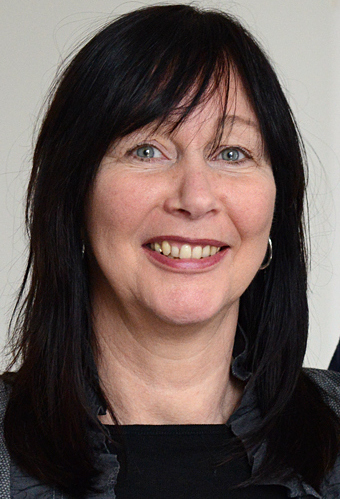
Andrea Tietz, born 1959, married, mother and grandmother, naturopath since 1994, her development as a woman and naturopath, inspired her on the topic of menopause. To facilitate mental and physical phenomena she uses naturopathic treatment and constellations.
Practice in 10179 Berlin www.core-evolving.deATietz@core-evolving.de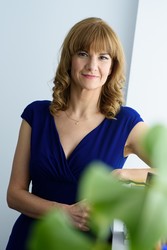
My I, my body, my life - IBODY
Recently I wondered about these words: everybody, nobody, somebody, anybody. Can you see what I mean? Even nobody is a body. Are you a body? Or do you have a body? Do you feel your body? When do you really feel alive? What and who gives you energy? Do you find yourself comparing your life, yourself, your characteristics with others? Do you live YOUR life?
If you ever wondered about feeling alive or staying alive, about being more energetic (not tired or exhausted), or about your body and how vital it is, this workshop is for you. It helps you to better realise the connection between your own vitality and who you really are, your inner strength. If you want to enhance your vitality, maybe live longer or getting healthier, you need to clarify your own inner dynamic, the way you move, the way you create movements, the way you drain your energy away or turn it against yourself without knowing this. You can become aware of what happened to you when you experienced the first movements in and with your body. In addition, we have been moving since we were 2 months old in our mothers’ womb. It helps you discover inside yourself what the results of many studies in recent years show: how early traumas influence our movements, our body, wellbeing and vitality. You have a chance to connect with and feel the main source of life-energy: IBODY. Because everybody is a body.
Diana Lucia Vasile has been practicing trauma psychotherapy for more than 17 years. She earned her PhD studying family traumas, resilience and posttraumatic growth. She is a professor, speaker and trainer, teaching and talking about people’s potential and how trauma impacts it and transforms our identity and health. Diana is the co-founded and the president of The Institute for the Study and the Treatmant of Trauma in Bucharest, Romania, a leading institution in trauma psychology and psychotherapy.
www.psihotrauma.ro
dianavlucia@gmail.com
Regulation and Dysregulation of emotions by both - client and therapist - during the constellation-process
Probably you have experienced it in an IoPT seminar: A client seems to be very motivated to work with his/her intention, which is obviously important to him/her, but the process is stalled. "The survival parts are still too strong," it says, or "still too little in contact with the self." Often one could also say in such situations, "the fear is still too large". Such statements obviously assume that it is the client's anxiety. However, what if the therapist's fear is unconsciously the same? What if, as a result, the way in which the therapist regulates his or her own feelings during the IoPT constellation, influences the client's process? Facilitators and therapists are mostly traumatized people themselves. It can be concluded from trauma research that it is likely that even their anxiety centers in the brain could be easily activated, and thereby their own survival strategies could be activated when they look closely at a client's trauma process. Even if they are already experienced therapists and even if they have already worked on their own traumata.
How do we enable ourselves as a therapist / facilitator to make the process as effective as possible for our clients? A workshop about the regulation and dysregulation of emotions, by both, the client and the therapist in a mix of theory, observation, experience and reflection, with a lot of input for your own practice.
Margriet Wentink, born 1963. Training in NLP and hypnotherapy, child therapy and art history. Training and supervision at Franz Ruppert since 2005. Co-author of the book: "Early trauma". Two books about more generational trauma in the Netherlands.
Wim Wassink, born 1944. training in special education, individual psychology and NLP. Supervision at Franz Ruppert.
Since 1996, Margriet and Wim have their own center for multi-generational psychotraumatology operating in Interakt in Tiel (NL), since 2006, they work with the method of Franz Ruppert which they have introduced in the Netherlands. Together they have translated several books of Franz Ruppert into Dutch. They offer individual therapy, group seminars and training in the Netherlands, Belgium and Germany. Practice in Germany, Belgium and the Netherlands.
www.interaktiel.nl
info@interaktiel.nl
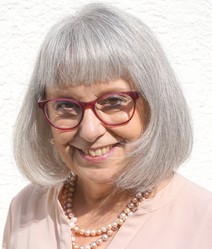 Psychological trauma and dementia
Psychological trauma and dementia
There are approximately 1.6 million people suffering from dementia in Germany – and the number is rising. Scientists are convinced that most forms of dementia are caused by age-related degradativ processes in the brain. Therefore, risk of dementia is much higher at old age. Knowledge gained from neurobiology and from psychotraumatology proving that our brain converts experiential stimuli into biological signals is being disregarded. In fact, interpersonal relations are highly relevant for human health. Considering that, plague formation that goes with Alzheimer's disease can be a long-term consequence of bothersome relationships. Based on this consideration, dementia's major symptom – the loss of memory – can be regarded an age-based survival strategy.
In most cases, people affected live in more or less steady family structures. Due to their disease, they need help and shelter. Facing pressure from society, relatives see themselves responsible to care for their ill parent, brother, or sister. They do not feel comfortable distancing themselves from the huge responsibility that comes with having to care for someone. Consequently, they give themselves up and prioritize the needs of their ill relative over their owns'. Another reason for that is they try to find closeness to the person affected by helping them in time of need – closeness that has not been there before. This is where I see a high risk of re-enactment of identity trauma as well as love trauma. People suffering from dementia experience the loss of independence. Caring relatives with an unstable identity identify themselves with the ill person, which is extremely problematic.
If they have not processed their own trauma, relatives are highly likely to engage in a perpetrator-victim relationship again. It soon becomes palpable how strong and stable the own identity of the caring person is. If it is strong enough, they are able to make decisions based on their own wellbeing.
Martina Wittmann, born in 1960, a nurse, a teacher of nursing professions, foreign assignment on "Care Germany" in the refugee camps of the Republic of the Congo during the genocide in Rwanda. 1998 training for supervisor. 2002 training by Prof. Franz Ruppert, since 2004 seminars and individual work in private practice in Augsburg.
www.traumaaufstellung-augsburg.de
info@traumaaufstellung-augsburg.de
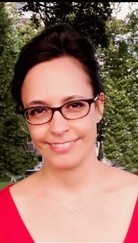 When the body lives yesterday
When the body lives yesterday
Traumatic memories are primarily implicit. Those implicit memories live on as bodily sensations, emotions, and behavioural patterns, even though the traumatic situation has long gone. Especially early traumata may result in long-standing conditions of stress and in a permanent raised arousal. Under the influence of such a global high arousal, we have little abilities to stand against pressure. We are very sensitive to stimuli from outside, and often the inner arousal persists without such stimuli. It can manifest itself in holding back breath, in muscular tension, or in the contraction of internal organs. That long-standing dysregulation may lead to various symptoms.
Equal to the permanent raised arousal we create our „outer“ life: excessive working, exercise-addiction, and activity-addiction. We are not able to calm down without the help of alcohol, drugs or medication. The actual reasons are suppressed into the unconsciousness. However, our body remembers. Our organism is frozen in the experience of former trauma. It feels like the traumatic situation is still present. „Time heals all injuries“ does not count for trauma. Dissociated traumatic experiences are static and do not change due to new life circumstances. The past persists, and it prevents us from living in the present.
Via the Intention Method, we gain access to our unconscious traumatic experiences, and we are able to assimilate it. The goal is to re-establish our healthy personality. This method will be presented on the basis of a practical example.
Catherine Xavier, born 1974, studies in Gießen and Berlin, now living in Berlin, 2013 Training in IoPT with Franz Ruppert, also training in Somatic experiencing. Naturopath, teacher at the Paracelsus School in Berlin. She runs her own practice in this city.
www.psychotraumatherapie-berlin.de
kontakt@psychotraumatherapie-berlin.de

